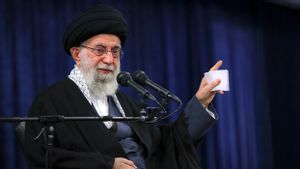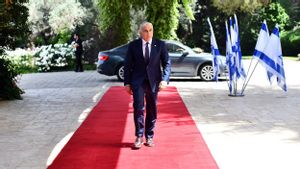
JAKARTA - Kremlin spokesman Dmitry Peskov said Russia did not need to make contact with the United States before making a final decision regarding withdrawing from the Comprehensive Nuclear Test Ban Treaty (CTBT).
"They (contacts with Washington) are not necessary," said Peskov, when asked whether President Vladimir Putin would contact the United States, before making the final decision to sign the law regarding Russia's repeal of the CTBT ratification into law, reported TASS, November 2.
Previously, President Putin said for the first time in early October that Russia might revoke its ratification of the CTBT. He explained that Moscow could follow Washington, which has signed but not yet ratified the agreement.
The CTBT deratification bill received final approval by the Federation Council (upper house of parliament) on October 25, and was then sent to the president for signature. Under the Russian constitution, the president has 14 days to decide whether to sign it into law.
As a multilateral document, the CTBT Treaty is intended to be the main international legal instrument to stop all types of nuclear testing.
However, to date, the agreement has not entered into force because it has not been ratified by eight of the 44 countries that have nuclear weapons or have the potential to have them.
Russia signed the agreement in New York on September 24, 1996, before ratifying it on May 27, 2000.
Previously, Peskov said withdrawing ratification would put Russia on an equal footing with the United States.
관련 항목:
"Our position is very clear. Now the de jure situation has balanced. Now both the US and Russia are signatories to the agreement, but the agreement has not been ratified by either country. So we are monitoring [the situation] very closely," explained Peskov.
Apart from the United States, countries that have not ratified it are China, Egypt, Israel, Iran, India, North Korea and Pakistan.
The Russian parliament said the countries' failure to complete the domestic procedures necessary for the treaty to enter into force showed an unwillingness to assume the full scope of relevant obligations. thus forcing Russia to take retaliatory measures to balance the situation.
The English, Chinese, Japanese, Arabic, and French versions are automatically generated by the AI. So there may still be inaccuracies in translating, please always see Indonesian as our main language. (system supported by DigitalSiber.id)

















